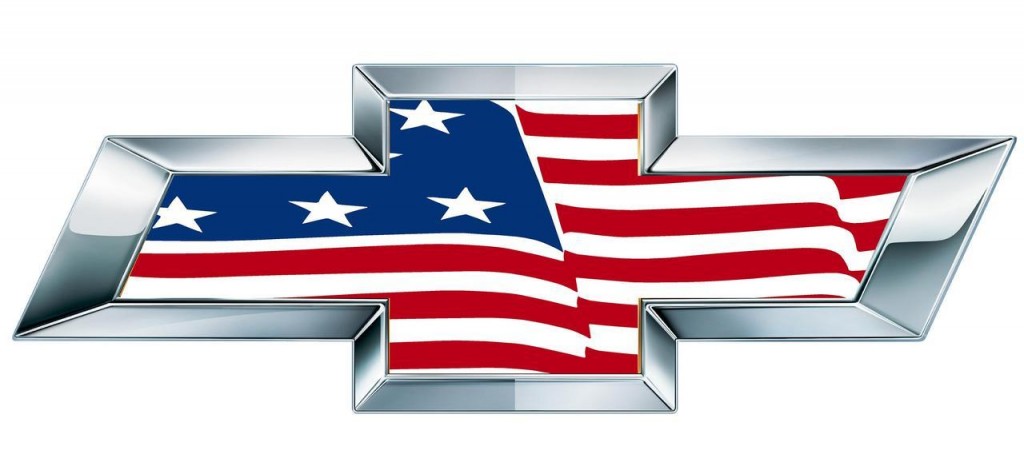 It recently came to my attention that a Chevrolet dealership in Indiana had a visit from a Chevrolet “architect” who instructed them that they must remove pictures of athletes that they sponsor and recognize and, worst of all, the American flags they had proudly displayed around their dealerships. This is the worst kind of hypocrisy and is a slap in the face to Americans.
It recently came to my attention that a Chevrolet dealership in Indiana had a visit from a Chevrolet “architect” who instructed them that they must remove pictures of athletes that they sponsor and recognize and, worst of all, the American flags they had proudly displayed around their dealerships. This is the worst kind of hypocrisy and is a slap in the face to Americans.
Maybe they don’t remember that the U.S. Government helped the automaker to the tune of almost $50 BILLION. In the end, the USA Today reports that the U.S. Government may actually LOSE $10 BILLION of taxpayer money by doing so. It has only been four months since the U.S. Treasury Department exited the automobile industry with the sale of their remaining stock in G.M. It also wasn’t too long ago that the United States actually OWNED ~61% of the company itself.
Apparently, the divorce is final.
Not only does this infuriate me but it’s also bad for dealerships. Most dealerships survive on regular and repeat business especially in their service departments. The ONLY thing that they have to differentiate themselves from their competing Chevrolet franchise is their personality and the customer experience they provide. The homogenization of dealerships around the country (and the world) only serves to strengthen the brand and does absolutely nothing for the franchise.
Think about it. You may be a loyal patron of many stores… Rite Aid, Walgreens, Nordstrom… you name it. If you haven’t noticed, those companies do their best to make their stores identical as well. They do it because it offers a familiar and consistent experience across all locations and serves to make the customer more comfortable shopping with them… NO MATTER WHICH LOCATION IS CONVENIENT. If you’re a loyal Walgreens customer, you don’t necessarily care which location you go to when you need something they sell. You just go. This is a normal practice amongst large retail chains.
Automakers who are forcing design and décor compliance on its dealers (which most of them do) accomplish this by dangling big carrots of money in the form of financial subsidies to build new showrooms. I would argue that this DETRACTS from a dealership’s personality. It makes you less different than your competitors. It gives consumers LESS of a reason to choose you over the next dealership. All of a sudden, dealerships are like Walgreens, McDonalds, or any other retail chain. Over time, dealerships will be less able to differentiate themselves to consumers. When everything looks and feels the same… well, it must be the same.
You already have to battle your own brand for visibility in your digital marketing. Go ahead and try to rank over your brand on Google. See how much you’d have to spend to get the first position in a PPC campaign over your brand in your market. Some manufacturers are requiring dealers to do business with only certain vendors. If you look at many of these “required” vendors, their strategy is to push the same content for those dealerships. Many manufacturers create websites for their dealers (whether they want them or not) which puts dealers in a position of battling… well, with themselves. Then they force dealers to buy leads from them and regulate how quickly you respond and even what you say in some cases.
This homogenization is not only happening in our physical world but it’s slowly creeping into our digital one as well.
The fact that Chevrolet, a company that was owned by the United States less than a year ago because they couldn’t pay the bills and is also currently running to a U.S. Bankruptcy Court judge begging the court to “enforce a bar on lawsuits stemming from ignition defects sold before its 2009 bankruptcy…” to ask franchisees to remove the American flag from their showrooms is the epitome of hypocrisy and screams ingratitude. The bottom line is that Chevrolet has been asking a lot from the United States government and its taxpayers for the last few years while, at the same time, forcing its franchisees to remove the very symbol of the same.
Don’t mistake these concerns as only regarding Chevrolet (or General Motors), however. As a franchise owner, you should be very concerned that your manufacturer is forcing you to become less you and more them. You sell the same cars as all of the other franchise owners of your brand so the ONLY thing you have to differentiate yourself is WHO you are. Manufacturers don’t care if your customers are loyal to YOU. They only care that the customers are loyal to THEM.
The more your business – both physically and digitally – becomes THEM, the less consumers will care about YOU.
[P.S. I can confidently say that U.S. Veterans of the Armed Forces – including your employees, customers and members of your community – won’t be really happy with this policy. One can only guess if this will affect their perception of your dealership and/or brand.]
